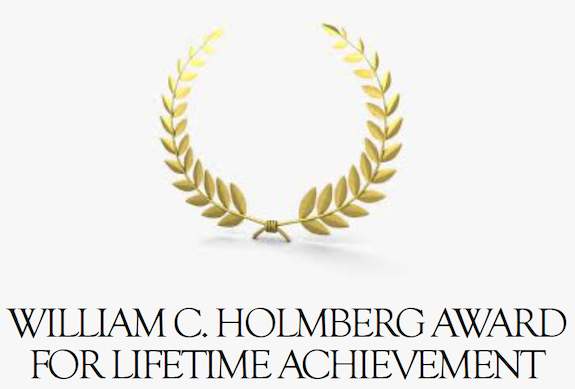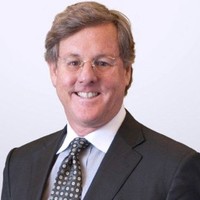McAdams wins 2023 William C. Holmberg Award for Lifetime Achievement in the Bioeconomy

The term advanced biofuels more or less originated as a catch all in the 2007 Energy Independence and Security Act, for the fuels that were not biodiesel, corn ethanol or cellulosic ethanol. At the time, it primarily referred to Brazilian sugarcane ethanol. Soon the term changed. corn ethanol had become big business, highly successful and there was controversy over land use, tax credits, emissions reductions, and blending mandates.
At the same time, technology unlocked new options for drop-in fuels that would use wastes and residues as feedstocks, pose less of a challenge on land use, offer extravagant emissions reductions, and fit for new purposes such as aviation, heavy duty transport, and marine. They became what we know as advanced biofuels today.
A group of companies began to develop technologies, husband the new feedstocks, pioneer new catalysts, unveil new financing structures, test the finished fuels and sign offtake contracts. They needed policy support, a lot of it. It was in this context that the Advanced Biofuels Association was born.
Results speak for themselves. We keep a chart for the ABLC State of the Industry presentation on advanced biofuels planned capacity around the world, including biodiesel, renewable diesel and SAF. The number has risen to more than 27 billion gallons. In ethanol-equivalent terms, to put everything on an energy equivalent basis, that’s nearly 50 billion gallons counting RNG and something like 43 billion gallons without it. Will all of the planned capacity be built? Hard to say, but new projects are surfacing all the time, too — and look out for hydrogen too as an alternative fuel or fuel component.
The global development story of our times
Advanced biofuels, on a pound for pound basis, have been the development and deployment story of our times. The planned capacity represents something near 400 billion pounds, per year, including RNG gaseous fuels in the mix.
By contrast, roughly 250 million pounds of iPhones have been sold since they were invented, to make a comparison based on tonnage. Says here that the consumption of plant-based meats might reach as much as 2 billion pounds per year by 2024. About 24 billion pounds of battery electric cars were sold last year, says here. There’s simply no comparison, in terms of scale, in the adoption of new technology.
More is coming, and for good reasons. Advanced biofuels represent a solution for heavy-duty, especially long-range or where lift is needed, that supplements and complements the opportunities with battery-electric vehicles. Liquid energy storage is far preferable to batteries in stability and density. Plus, existing vehicles run on IC engines and advanced biofuels represent the best emissions option for them. Third, advanced biofuels offer the only known true carbon-negative pathways for energy consumption.
In a story as big as advanced biofuels, there are many heroes, and they have labored, all of them, under pressures of time, financial constraints, and sometimes the disdain of a foolish public who think that all their problems will go away when everything in the world is run on batteries.
The true leaders
The true progressives are the people who make progress; the true agents of change are the people who actually change things; the true conservatives are those who have helped us to conserve our natural resources and re-use our infrastructure, thereby preserving what is important in our way of life; the true liberals are those who liberate us from the geopolitics of oil, the emissions that bedevil us, and the, miserable, turbulent, have/have-not society we get when we distribute wealth based on the vagaries of mineral deposits.
The 2023 William C. Holmberg Award for Lifetime Achievement in the Bioeconomy
They say that the Greatest Generation is the generation that fought the Second World War, but we may find that the Finest Generation may well be those who took up the challenge of changing the world’s energy platforms and paving the way for their adoption. Many of them came out of BP at a time when Lord John Brown declared that BP would henceforth stand for “Beyond Petroleum” and they have been the Beyond Petroleum Generation. C.J Warner, now on the Chevron board, Lee Edwards who led Virent in its early days, John Melo who has led Amyris more than 15 years. K’Lynne Johnson, the founding CEO of Elevance. Many others also answered the call. I thank them for courage, persistence, honest dealing, vision, and the dogged ability to deliver no matter the conditions.

Michael McAdams, founder and president, Advanced Biofuels Association
Our laureate today is one of those, an adviser to Lord Brown in an earlier phase of his career.
It is with pleasure that the 2023 William C. Holmberg Award for Lifetime Achievement in the Bioeconomy is awarded to Michael McAdams, founder and president of the Advanced Biofuels Association. At a ceremony on Thursday, March 23rd at 8am ET at ABLC 2023, we will have a chance to honor our 2023 laureate in person.
To paraphrase Lloyd Bentsen, I knew Bill Holmberg, I worked with him. Bill was a friend of mine. I can’t think of anyone who has better exemplified in recent years the spirit and determination of the man who gave his whole heart to the bioeconomy and whose name graces the Lifetime Achievement Award, than Mike McAdams.
Category: Top Stories















